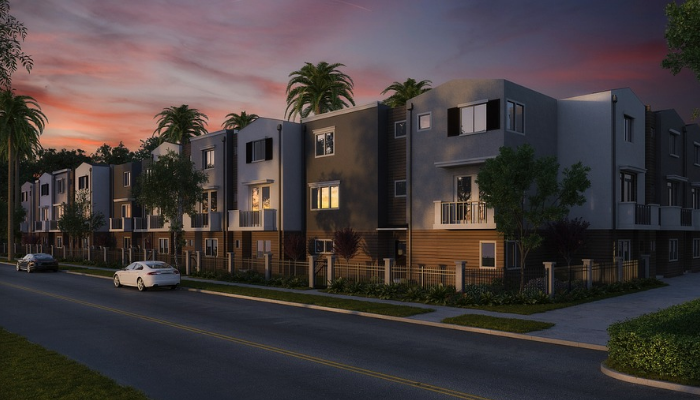Hey TYS readers, this is a guest post written by a personal finance blogger. Since many of you have to decide whether to rent or own a home now or in the near future, let this post encourage you to think about what’s the best option for you.
Housing is a fundamental expense, representing a substantial budget entry for most families. Whether you rent a house or apartment, or own residential property, a monthly lease or mortgage payment is probably among your most costly recurring expenses. And securing an address is just the beginning – housing costs also include insurance premiums, utility bills and other household expenses.
Although both forms of housing carry costs, there are substantial differences between home ownership and leasing residential property from another owner. It is up to each individual to weigh the benefits and shortfalls of the two approaches, factoring-in personal preferences, economic resources, and other financial considerations.
As you evaluate residential options, it helps to answer question about your lifestyle preferences and financial resources. How long do you plan to stay at your address? Are your credit rating and income level sufficient to secure a mortgage? Should you continue saving for a larger down payment, or buy a less expensive home today? Does your job call for frequent travel or relocation? Answers to these and other important questions help you work out the best possible living arrangement.
Advantages of Residential Rental
Home ownership is almost always held-out as a universally desirable scenario every resident should strive toward. But is it right for everyone? Before committing to the notion you need to buy a home, account for the following advantages of staying a renter.
Short-Term Commitment – If you are a person who quickly grows tired of an unchanged environment, renting from month to month gives you a ready out, should your tastes change. Home ownership, on the other hand, pays-off over several years. If you are prone to frequent moves, renting is an attractive option. When weighing the pros and cons of various residential alternatives, it is also important to consider the circumstances surrounding your employment. Does your job mobility increase if you are willing to move on short notice? How deep are your roots in the community? Does frequent travel make it hard for you to keep up with household maintenance and upkeep? Each of these concerns has an impact on your best approach to housing.
Lower Costs – A residential lease outlines a monthly commitment, designating landlord and tenant responsibilities. With the framework of each agreement, the parties decide who’ll pay for utilities, parking, and other household costs. Once established, your financial responsibilities as a renter are clear. Unforeseen, home-related expenses are rare for renters, making it easier to budget and plan for spending. And since repairs, upgrades and home maintenance are typically funded by the building owner, your monthly costs may be lower than those of a home owner.
Benefits of Home Ownership
Hands-off real estate rental has its advantages, but owning a home also carries myriad benefits. Consider the following gains, as you evaluate the particulars of a home purchase versus lease.
Less Red Tape – Staying atop tenant rights and responsibilities keeps you protected, in the event of a problem, but the effort may be more than you bargained for. If you’d prefer to make your own residential rules, without interference from a middle-man, home ownership gives you more freedom to control your own destiny.
More Privacy – Despite rules governing the use of rented property and required notice of entry by landlords, living in another person’s property does not afford the same level of privacy enjoyed by home owners. Not only can you modify your own property, adding privacy to its physical layout, but owning your home also eliminates unexpected visits from landlords, contractors and other uninvited guests.
Home Equity – Home ownership puts a roof over your head, but it is also an important piece of your financial outlook. Investing in a home encourages your money to grow, as property values rise, and furnishes a “savings account” in which to safely hold your resources. As an owner, monthly payments work to boost your own financial security, instead of building equity for a landlord.
Ties to the Community – Your home is one of the most substantial investments you’ll make in a lifetime, so ownership typically ties you to your community for an extended period of time. As your investment grows, so do relationships with neighbors, educators and other local personalities. Ownership fosters kinship and grows roots a short-term renter does not cultivate.
Tax Advantages – Depending upon where you live and the circumstances surrounding your home purchase, owning property may hold tax benefits. Interest payments, for example, sometime qualify as a cost of living expense you can claim to lower your tax burden. Each case should be evaluated by a professional, familiar with prevailing tax laws.
Owning a home represents an important step for some buyers, but it isn’t the best approach for everyone. In many cases, renting is a better lifestyle match, giving tenants greater flexibility. As you weigh housing options, consider costs, personal preferences, employment obligations, market conditions and other factors, helping you find residential comfort and financial security.



